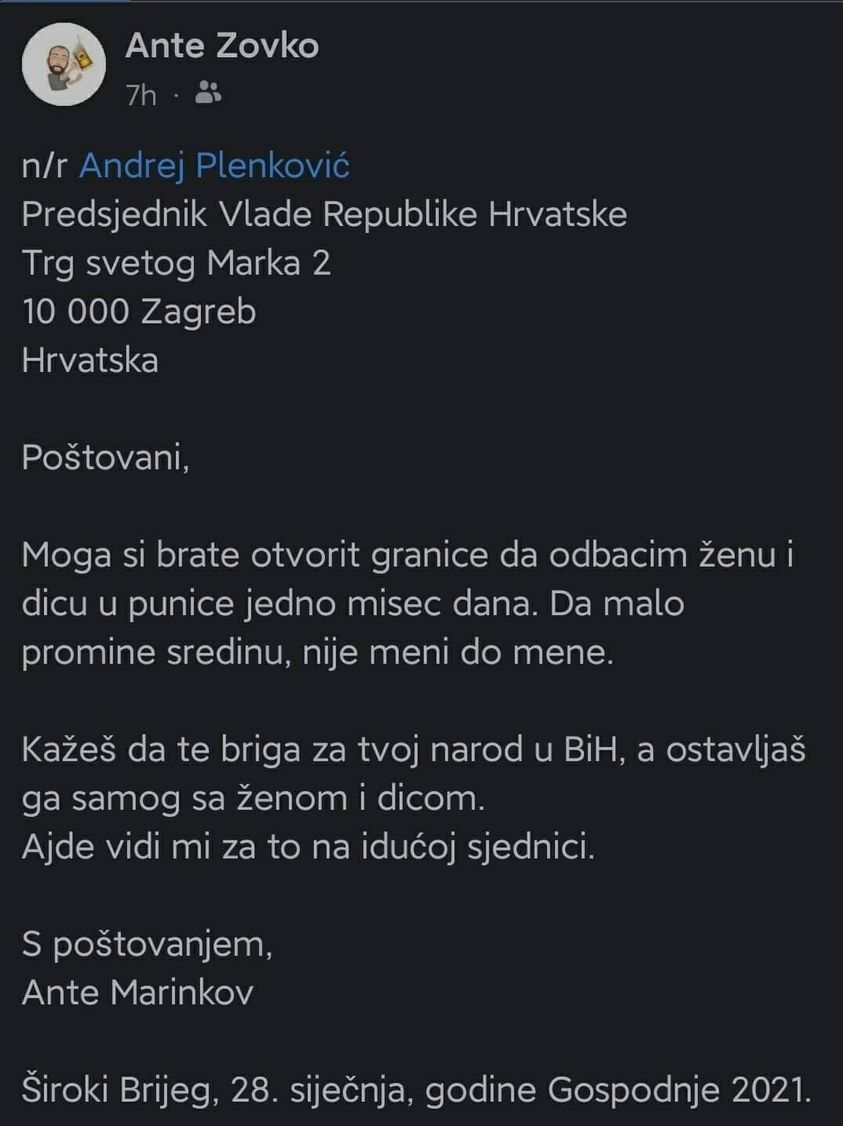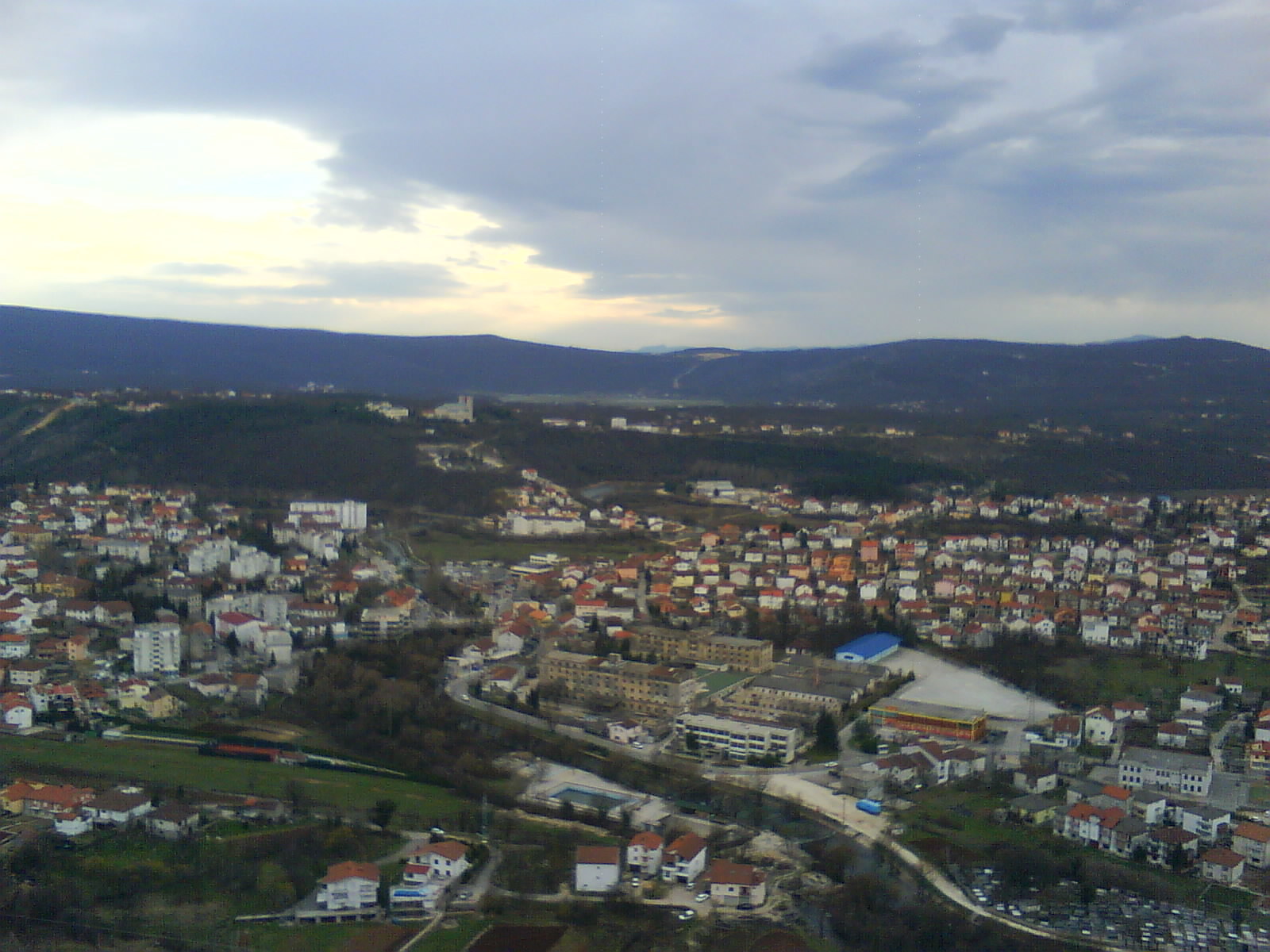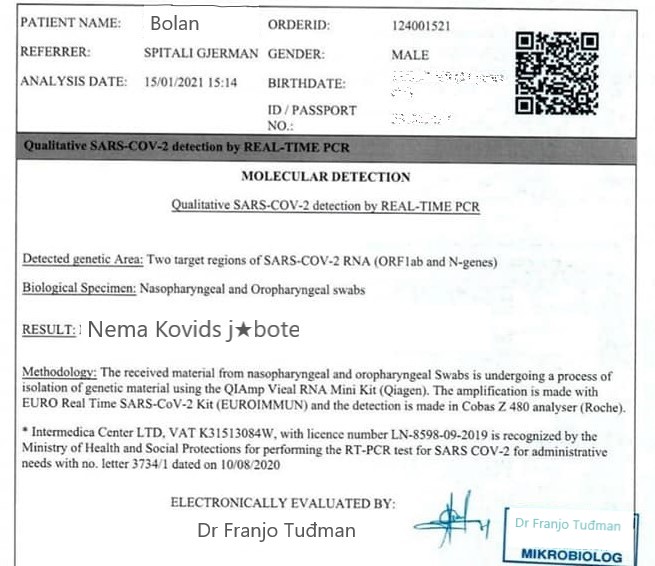Schengen Croatia: New Border Crossing and Motorway to Connect Baranja to EU
December 15, 2022 - Approximately two weeks are left until the moment when Croatia's entry into the Schengen area will become apparent "in the field". Schengen Croatia might significantly benefit the east of the country with the possibility of a new border crossing opening at Knezevo - Sarok in Baranja.
As Glas Slavonije writes, on the first day of next year, border controls towards EU member states will be abolished, and border ramps will go into history. This, however, does not mean that, if necessary, they cannot be closed again.
The stalls remain
The infrastructure at the border crossings, such as the stalls for checking documents, will remain in their current locations, but there will be no police or customs controls there. Kilometre-long queues of heavy trucks that used to form daily on both sides of the Dubosevica - Udvar border crossing will go down in history, at least for now. For the people of Baranja, for example, it will be much easier to go to Mohac and Pecs, which they will be able to reach quickly, just as they go to Osijek, without stopping.
Robert Jankovics, a member of parliament of the Hungarian national minority, who was also involved in the process of "abolishing borders", agrees. "The entry into the Schengen area is one of the great successes of the Government of the Republic of Croatia, achieved thanks to political stability, in which we from the Hungarian community in the Republic of Croatia also helped. The very fact of the entry of the Republic of Croatia into the Schengen area means a lot both for Hungarians in Croatia and for all Slavonians and the people of Baranja, who will no longer have to wait at the border. We will see additional benefits, I hope very soon, with the completion of the full profile of corridor 5C through Croatia, i.e. Baranja," says Jankovics, continuing that all this provides great opportunities for everyone who lives here - to live better.
On a smaller scale, he emphasises that people who migrate every day because they go to work in Hungary will benefit the most. There are few of them for now, which does not mean that there will not be more of them in the future. Speaking about his participation in the whole process, he says that he did what he could and what was within his authority. He also conveys parts of parliamentary political discussions about the future of border policemen and customs officers, emphasising that it was promised that no one will be out of a job and that their wages will not be reduced.
Furthermore, Croatia's entry into the Schengen area opens up several more possibilities. First of all, a greater number of "border crossings". More than 10 years ago, Glas Slavonije wrote about the need to build a road between Knezevo in Baranja and Sarok in Hungary. At that time, the Hungarians had already built a road from Sarok to the border with Croatia, but it turned out that the road - lead nowhere. In 2009, the leaders of the Popovaca municipality were invited to neighbouring Sarok for a discussion about the future road, and even the Hungarian Minister of Transport was at the meeting. The idea sounded great, especially since the two places were connected for centuries because they were in the same country, Austria-Hungary when they were connected by a macadam road that can still be seen today.
Connectivity and development
Although there are only three kilometres of road from Knezevo to the border, the project was halted from the Croatian side, with the explanation that everything would be started when Croatia enters Schengen, which was also confirmed by the higher levels, announcing at that time the construction of a total of 17 crossings, including Knezevo - Sarok, after Croatia becomes part of the Schengen area.
"Now is the time to revisit the issue and intensify it. I would like the whole story to end satisfactorily and for Baranja to get another border crossing. The two crossings on the future motorway and the one between Knezevo and Sarok would serve the population on both sides of the border, and Baranja would reach the level of Western Europe in terms of connectivity. Between Belgium and Germany, for example, there is a border crossing every 10 kilometres," explains Jankovics, emphasising that transport connectivity enables faster development, especially since the southernmost parts of Hungary and the northernmost or northeastern regions of Croatia are among the most underdeveloped areas of the two countries because they are a sort of dead end where "bus turning points" because they have nowhere to go. The new border crossing, along with the motorway, will mean the opening of Baranja to Europe.
For more, make sure to check out our dedicated Travel section.
German Reporter Fined €480 for Unlawfully Crossing Border With Irregular Migrants
ZAGREB, 20 Nov, 2021 - The municipal court in the Karlovac on Saturday fined a German reporter for having tried to illegally cross from Bosnia and Herzegovina into Croatia with a group of irregular migrants, the local police reported.
The group of eight foreigners, including the 44-year-old German journalist, was caught by the Croatian police while trying to illegally enter Croatia near the town of Cetingrad, and on Saturday, the reporter was taken before the magistrate who imposed a fine of 3,600 kuna (€480) on the offender.
The court upheld the charges for illegal crossing but dismissed the police charges that the German reporter had helped irregular migrants in illegal border crossing. The police said they would appeal the dismissal of those charges.
Apart from the German reporter, the group included four adult migrants and three minors. After they were caught, they said that they would request international protection in Croatia.
For Croatia's latest news, CLICK HERE.
Three Danish Nationals Charged With Illegal Entry Into Croatia From BiH
ZAGREB, 8 Nov, 2021 - The Croatian police in Cetingrad have filed misdemeanour charges against three Danish nationals who illegally crossed the border to enter Croatia from Bosnia and Herzegovina where they had left their vehicle and recording equipment.
The police reported that during regular supervision of the border, at about 21.50 hours on Sunday evening they came across two men and woman crossing the border at a location where there is no border crossing and that they had recording equipment with them."
The three were taken to the local police station and it was determined that they had come through Bosnia and Herzegovina to the border with Croatia and then crossed the border on foot.
Misdmeanour charges have been filed against the three perpetrators.
For more about Croatia, CLICK HERE.
Building Bridges Between Croatia, Bosnia and Serbia
February 18, 2021 – Appropriate government bodies of the three neighbours have come together and agreed to work together to improve bridges between Croatia, Bosnia and Serbia
We say building bridges between Croatia, Bosnia and Herzegovina and Serbia. It's actually more a case of renovating and maintaining bridges between Croatia and the two neighbours to the east.
Despite what journalist Zdenko Jurilj describes as “constant political skirmishes” between the neighbours, in Vecernji List's coverage of this news, the Bosnia and Herzegovina Council of Ministers and the governments of Croatia and Serbia have reached an agreement to work together in the rebuilding, maintenance and review of bridges which connect them. According to the signed agreement, each party will share 50% of the costs without, as it says, "claiming compensation from the other party, unless otherwise agreed between them."
In other words, the cost of renovating bridges between Croatia and Bosnia will be half paid by Bosnia, half paid by Croatia, the cost of renovating bridges between Bosnia and Serbia will be half paid by Serbia, half paid by Bosnia.
According to the agreement between the three governments, equipment needed for the reconstruction and maintenance of the bridges will be exempt from customs duties. Bridge managers shall make a detailed inspection of each of the bridges at least once every five years and independent experts appointed by the bridges' trustees will inspect them each year.
There are 10 bridges between Croatia and Bosnia and Herzegovina which will be jointly maintained. Most of them stretch between the countries across the Sava river, although a few cross over the Una, Maljevac and Korana rivers. A further 11 bridges between Serbia and Bosnia are within the agreement, making a total of 21 bridges to exist within the deal.
Although there are bridges between Croatia and Serbia (including at Ilok and Erdut in Slavonia), within the article published by Vecernji List there is no mention of an agreement to improve bridges between Croatia and Serbia. Following the optimistic and uplifting promise of the headline at the start of this news item, this fact is a rather more unfortunate metaphor on which to end it.
For the latest travel info, bookmark our main travel info article, which is updated daily.
Read the Croatian Travel Update in your language - now available in 24 languages
Hercegovac Begs Cro PM 'Open Borders So I Can Send My Wife To Her Mother'
January 29, 2021 – Lockdown is apparently taking a toll on one Hercegovac. The man from Široki Brijeg wrote to Croatian Prime Minister Andrej Plenković and begged him to reopen the borders between Croatia and Herzegovina so he could eject his wife from the family home for a month and send her to his mother-in-law's
The message from Hercegovac Ante Zovko (Ante Marinkov) was reposted on the Facebook page Imocki crnjaci where it picked up some 3 thousand likes in less than 6 hours.
The town, Široki Brijeg, where this particular Hercegovac (a man from Herzegovina) lives is just 35 kilometres from the border with Croatia. Lots of Croatians live in this area, including this Hercegovac, his wife and his child. But not, it would seem, his wife's mother, who apparently lives in Croatia. Široki Brijeg in Herzegovina, around 35 kilometres across the border from Croatia © Anto (talk)
Široki Brijeg in Herzegovina, around 35 kilometres across the border from Croatia © Anto (talk)
The Hercegovac's reason for wishing to eject his wife and child for a month was to change up the atmosphere for a time. One presumes he was not being entirely serious with his request.
The Hercegovac is not the first man to seemingly reach the end of his tether while restricted to staying in the family home. In April 2020, after just one month of being housebound, a man from a village near Osijek in Slavonia left his wife in the family home and went to live nearby in a tent.
Speaking anonymously at the time, the man's neighbour told the local SiB.hr news portal the couple have been happily married for 30 years. But, it seems the pressure of being around each other so closely during the lockdown was too much even for their strong union.
The neighbour was happy to report that since his friend pitched his tent in the nearby locale, relations between the man and his wife had actually returned to their usual levels of warmth and friendliness. The wife even came regularly to visit her husband in his tent. © John Waring
© John Waring
"My neighbour has been in his tent for a few days now,” he told the portal back in April. “He puts up a table and chairs in front. Occasionally our other neighbour comes over to drink some rakija (with him). I visited him too.”
The neighbour said his friend had quit the family home due to boredom more than anything else. Even after being happily married for 30 years, being around each other 24 hours a day was apparently just too much.
Perhaps in this more chivalrous response from the Slavonian man, Hercegovac Ante Marinkov could take some inspiration? After all, it's surely easier if one person departs from his family home in order to change the atmosphere than if two are forced to leave. Ante should find a nice spot in the fields nearby – not too close – and simply pitch up a tent. Problem solved! If he's lucky, his wife might come to visit bringing rakija.
45 People With Fake PCR Tests Detained At Croatian Border In One Weekend
January 19, 2021 – 45 people tried to enter Croatia with fake PCR tests this weekend alone. They were caught by Croatian police, detained at the border and reported to the State's Attorney office. If found guilty, each faces a maximum penalty of three years in prison
Some 45 people tried to enter Croatia through the borders of one county with fake PCR tests this past weekend.
Travel from Bosnia and Herzegovina into Croatia currently requires the production of a negative PCR test or a doctor's certificate proving you have successfully passed through a COVID-19 infection in recent months.
Since the ban on entering Croatia from Bosnia and Herzegovina without a negative PCR test was introduced, fake PCR tests are increasingly being forged. Border police and customs officers at crossings in Brod-Posavina County have met many people trying to cross the border with fake PCR tests. But, this weekend a new record number of forged tests were found on the county's border crossings.
According to a statement from the Brod-Posavina Police Department, as many as 45 attempts to enter the country with fake PCR tests were discovered on Saturday and Sunday.
"At the Stara Gradiška border crossing, police officers determined that 43 persons, mostly citizens of Bosnia and Herzegovina, presented fake PCR tests issued in BiH at the border control. At the Slavonski Brod border crossing, two people were registered who gave forged tests," the Brod-Posavina police reported.
Police officers file criminal charges against all those suspected of committing the criminal offence of forgery of a document with the Municipal State Attorney's Office in Slavonski Brod. If found guilty, such persons face up to three years in prison.
The overall number of people detained on Croatia's border with fake PCR tests this weekend could actually be higher - the figures of 45 persons detained with fake PCR tests were released by the police of just one county in Croatia - Brod-Posavina County. A further eight Croatian counties exist along the border with Bosnia and Herzegovina. Each has border crossings between the two countries.
Croatian and Slovenian Ministers Discuss Border Control, Illegal Migrants
ZAGREB, Dec 11, 2020 - The interior ministers, Davor Bozinovic of Croatia and Ales Hojs of Slovenia, on Thursday held a video meeting on illegal migrants and the protection of border as well as on the regime of cross-border travel during the COVID-19 pandemic, the Slovenian New Agency STA reported.
The minister agreed on seeking solutions for making it impossible for irregular migrants to cross borders illegally, the STA quoted the Slovenian interior ministry's statement as reading.
They assessed the cooperation between the two ministries and the countries' police forces as good, adding that the operationally and strategically the cooperation has been recently focused on anti-COVID restrictions and illegal border crossings.
The ministers agreed on the preparation of the system for registering information on the entries/departures and refusal of the entry for citizens from third countries, that is non-European Union members, at the Schengen border.
Hojs expressed dissatisfaction with a high number of illegal entries at the Croatia-Slovenia border, which prompted the Croatian minister to point to a high number of illegal migrants in Bosnia's areas near its border with Croatia, who are trying to reach destinations in western and northern Europe.
The two ministers pledged to seek a solution to this issue, Slovenia's media utlets reported.
Small Border Crossings between Croatia and Bosnia to Reopen on Thursday
ZAGREB, Oct 14, 2020 - Sixteen small border crossings between Croatia and Bosnia and Herzegovina that have been closed since April in an effort to prevent the spread of the coronavirus will be reopened on Thursday, Bosnia and Herzegovina's border police said on Wednesday.
After an agreement was reached between the two countries, small border crossings will be reopened to facilitate crossings for children who attend schools in Croatia and business and agricultural activities in cross-border regions.
"Border crossings will be opened to traffic as of 15 October 2020. Crossing the border will be conducted in accordance with the agreement and valid legislative regulations," Bosnia's border police informed.
Residents in the area around Tomislavgrad, Capljina and Ljubuski have protested on several occasions over the past month and called for small border crossings to be reopened so that their children attending schools in Croatia can cross the border more easily.
For the latest travel info, bookmark our main travel info article, which is updated daily.
Read the Croatian Travel Update in your language - now available in 24 languages.
HAK: Only Three Border Crossings between Hungary and Croatia Are Open
Zagreb, September 1, 2020 – As reported by Hina, as of September 1, due to the coronavirus crisis, only three border crossings between Hungary and Croatia are open: Duboševica-Udvar, Terezino Polje-Barcs (only for Croatian and Hungarian citizens) and Goričan-Leteneye, the Croatian Auto Club (HAK) reported on Tuesday morning.
Hungary closes the borders for all passengers who don't have a residential address in that country. The entry is only allowed for so-called justified cases.
Strong winds slow down the traffic on an A6 Rijeka-Zagreb motorway between Kikovica and Tuhobić Tunnel. On the part of section A1 between the Bristovac Tunnel and the Sveti Rok Tunnel, there is a speed limit of 60 kilometers per hour due to fog.
The roads are wet and slippery in most parts of Croatia.
The Croatian Auto Club (HAK) warns drivers to adjust their speed and driving style to the conditions on the road.
From August 15, Croatian citizens must have a negative PCR test, not older than 48 hours, to enter Serbia, unless they are only transiting through Serbia.
All persons traveling from the Republic of Croatia to Italy (from August 13) and Austria (from August 18), at the entrance, must have a negative Covid-19 test, not older than 72 hours, or they must be tested within 48 hours of entry.
The decision applies to the citizens of the Republic of Croatia, as well as to the persons who have resided in the Republic of Croatia. The transit through Italy and Austria is currently not restricted and does not require a negative test.
The catamaran line Ubli - Vela Luka - Hvar - Split is interrupted.
For the latest travel info, bookmark our main travel info article, which is updated daily.
Read the Croatian Travel Update in your language - now available in 24 languages
More Than a Hundred Thousand Guests Left Istria From Noon on Friday Until Sunday
Pula, August 23, 2020 – A total of 53,592 passengers entered and 100,948 left, mostly foreign nationals, from three road border crossings in Istria – Plovanije, Kaštela, and Požana – from noon on Friday to Sunday, the police officer of the Istrian Police Suzana Sokač reported. She added the traffic at border crossings is intensified, but without major congestion and waiting.
As HINA writes, according to information from the border police, more than 38,000 passengers left Istria through these border crossings on Friday alone, and Saturday almost 43,000 guests. Such a scenario was expected so on Friday the tourists from the UK massively left Istria due to the decision of the British Government that self-isolation is mandatory for all those returning from Croatia.
During the whole weekend, the traffic at the border crossings was heavy in both directions, so in Plovanija and Kaštela was a wait of about one hour yesterday, the Istrian police reports. The traffic in Istria was unhindered, without major delays.
For the latest travel info, bookmark our main travel info article, which is updated daily.
Read the Croatian Travel Update in your language - now available in 24 languages


